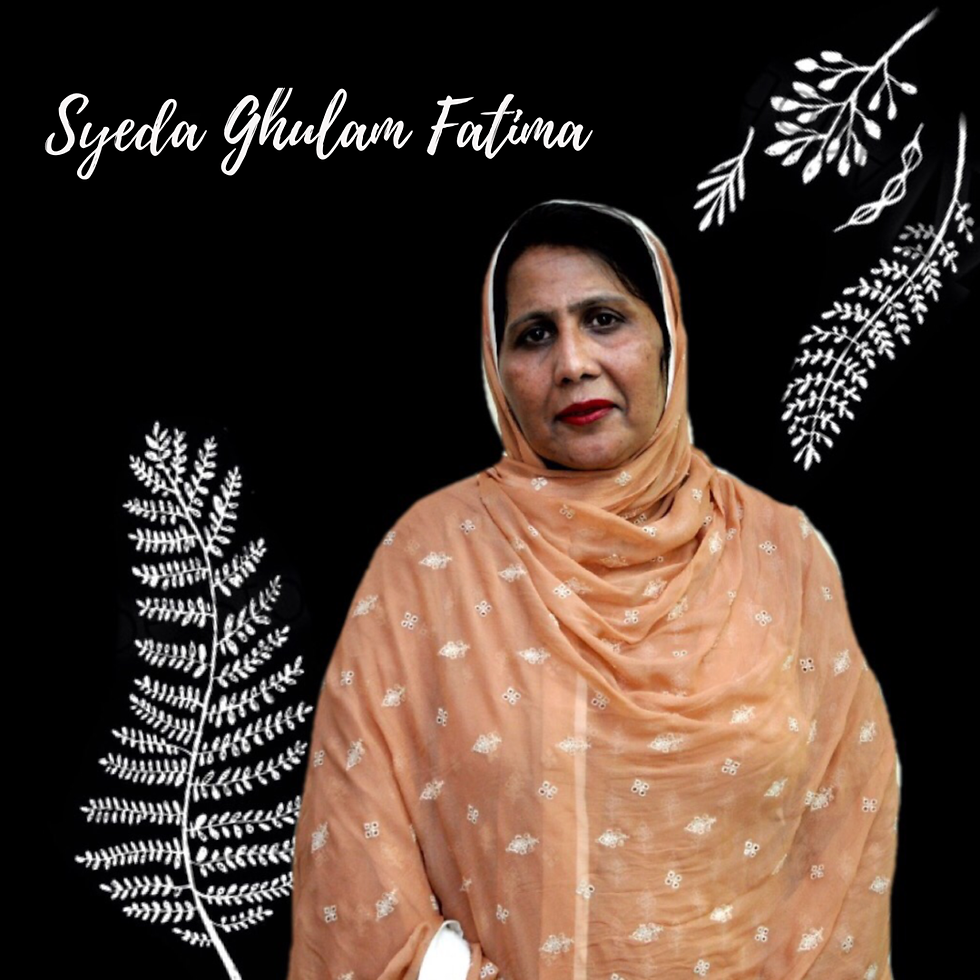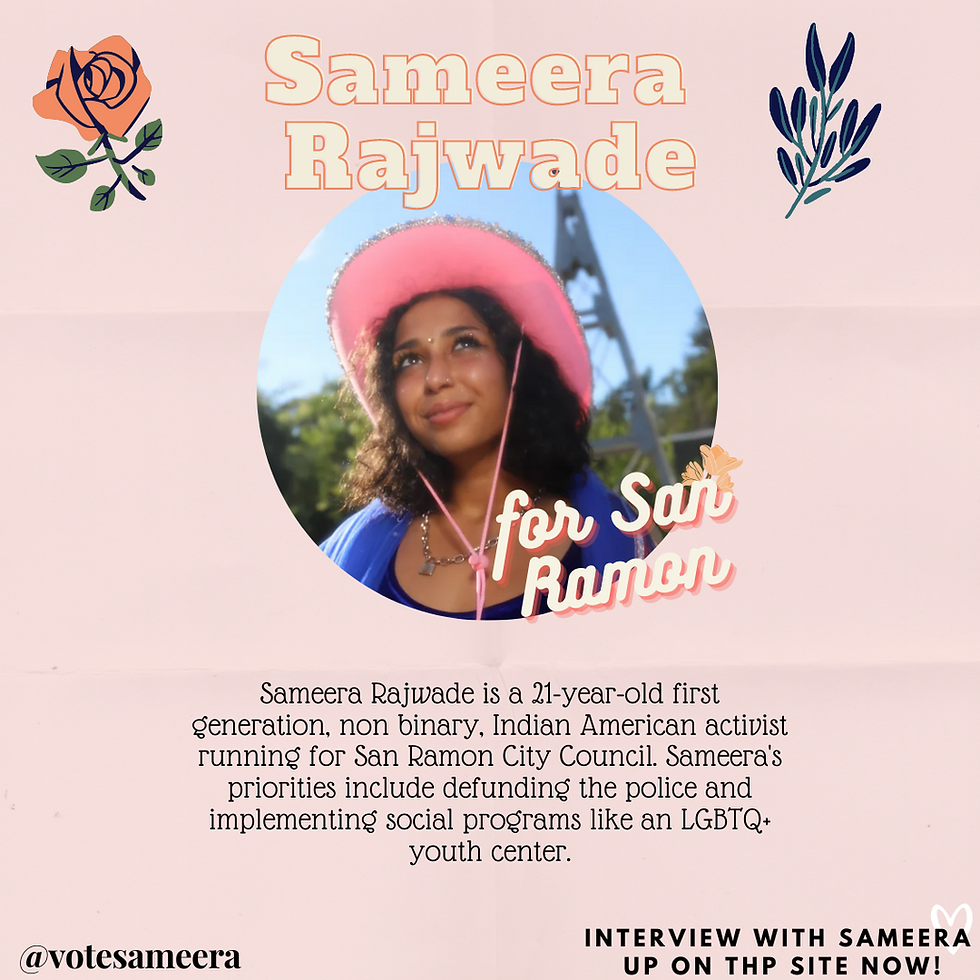Syeda Ghulam Fatima on Battling Pakistan's Modern-Day Slavery
- Nov 21, 2018
- 4 min read
Updated: Sep 4, 2019
Meet the Homegirl: Organizer, Humanitarian, Founder of Bonded Labor Liberation Front

Look around Pakistan, and you'll see a country hewn from brick.
Bricks are one of the principal components of manufacture all around Pakistan. Since bricks much cheaper than concrete, almost every structure in the countryside regions is made with them. In total, there are over 20,000 brick kilns across the country. An estimate of over 40 families labour on each of these kilns and each one of them is required to make 1000 bricks per day on an average, which means that many million people are living, to this day, in slavery circumstances across the country.
Unfortunately, many of these modern-day slaves are young children, bringing their blood and sweat together. Denied education and basic child rights and the joy, they are often made to work days and nights in one. In dangerous zones, isolated and cold, they are veiled from the eyes of society.

Ever since 1992, bonded labour has been illegal in Pakistan, but regardless of that, forced labour is still endemic in Pakistani society, and it is particularly omnipresent in the province of Punjab. The hands of laws somehow don’t end up reaching the outskirts of the kilns. Therefore, these workers continue to live in perennial fright of instability, violence and retribution.
Based in the heart of Punjab and cruel bonded labour--Lahore--is a fearless activist: Syeda Ghulam Fatima. Known to her admirers and Humans of New York’s Brandon Stanton as Pakistan’s “modern-day Harriet Tubman,” Fatima has been moving heaven and earth to make every endeavour on the cards to drive bonded labour in brick kilns, carpet and innumerable agriculture industries to extinction, along with conserving the basic human rights of these labourers and the liberation of the families caught in bonded labour in diverse areas of Pakistan.
Powered by her family’s circumstances and father’s activism, and inspired by her honourable and undaunted mentor, the late Asma Jahangir, Fatima was encouraged to become a human rights activist. As a teenager, Fatima succeeded in convincing her father to let her visit a brick kiln. At that time, the personal danger that came with visiting a kiln was immense. But Fatima was insistent.
Before 1988, it was a colossal challenge for her to bring the horrors of bonded labour to light, because there was not yet any legislation against this system of modern-day slavery. As a female activist, Fatima had few resources. She travelled by public transport, buses, and Tonga; oftentimes, long walks often brought trouble to her spirit. Fatima once had to wade out in a water course for more than three kilometers just to rescue a family in the area of then-President, Mr. Farooq Leghari. During that period, she and her helpers were also brutally beaten and arrested, and a fake FIR was even lodged against her and her helpers. She barely had enough resources to provide basic, moral support and meals to arrested workers, to meet the needs of their families at home, who were also pressurized by the brick kiln owners to give statements against her just to set their family members free; over all, proceeding with counterfeit cases.

In those hard days, there was not much understanding about human rights, as the lion’s share of the society was rather parochial. Working women used to be considered a sin. Most of all, working for debarred groups was regarded as an enormous sin. In a patriarchal medieval society, it was momentously challenging to grind for the justices of socially marginalised communities, and it became progressively more difficult for female activists.
Unfortunately, in the core of Punjab, all offices from top to bottom are still in the capture of elite groups. The feudal lords and brick kiln mafia have deep roots and linkages everywhere in the police, judiciary, Bar Associations, and prosecution departments. They are well-fortified with barbarian mannerisms. Fatima’s direct adversaries used all sorts of tactics against her, including charming offers, attempting to defame her, attempting to assassinate her, and trying to shatter her vigour by turning workers against her.
The powerful menace of her opponents often brought Fatima’s spirit down. Her heart was broken when one of her brothers was disabled in an act of gun violence. In spite of that, she promised herself to fight through all circumstances and all hardships till her last breath.
It is well said: When the going gets tough, the tough gets going.
Fatima has transformed society and continued the fight through her NGO, Bonded Labour Liberation Front Pakistan (BLLF). To date, she has been triumphant in liberating an estimated 80,000 bonded laborers across the country, and has created centers for their safekeeping and support, where she also brings forth training to women in diverse masteries for poverty alleviation. The ultimate end-game of all her endeavours is to earn dignity, respect and worth for victims of this slavery system, liberation and rehabilitation of slave workers.

Fatima is relentless in fighting for the extinction of modern-day slavery system, but liberating slave workers is not her only purpose. She knows it's also imperative to evolve the mentality of the oppressors, and that is something that comes with a demanding task. Therefore, Fatima aspires to establish a mega university of culture and arts, which would bring together youth from elite families and youth survivors of slavery and armed conflict. A safehouse that would inculcate peace, love, humanity, and shape a culture of tolerance to contribute in a world without biases, wars, armed conflicts; to contribute in a world devoid of hatred based on colour, caste, creed, religion, and economic differences.
Fatima longs only for peace and equality.




Comments